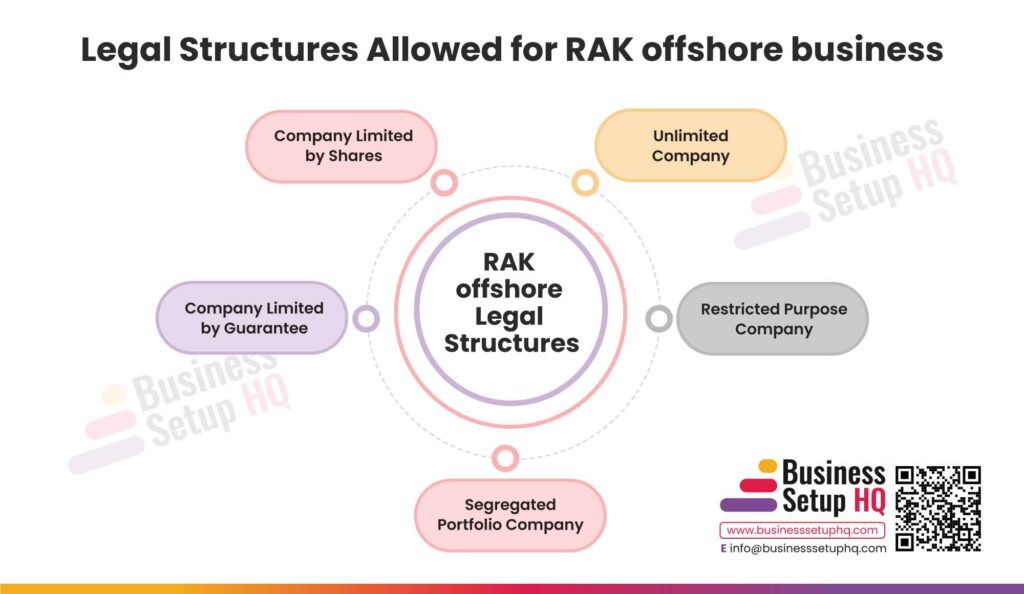Easy-to-Follow Offshore Company Formation for Startups
Easy-to-Follow Offshore Company Formation for Startups
Blog Article
Navigating the World of International Company: Insights on Offshore Company Formation
Offshore Company Formation presents a strategic method for international business operations. It offers notable benefits, such as tax obligation optimization and enhanced personal privacy. However, the process is not without its challenges. Comprehending the intricacies of different jurisdictions and regulatory requirements is crucial. As organizations think about these options, the steps entailed can substantially influence their lasting success. What are the key aspects that can cause effective overseas monitoring?
Recognizing Offshore Business: Interpretation and Function
Offshore companies have actually come to be a prime focus in worldwide business discussions as a result of their special legal and monetary structures. These entities are developed in jurisdictions beyond the owner's country of home, typically with favorable governing environments. Commonly, offshore companies offer numerous purposes, such as property security, tax optimization, and enhanced personal privacy. They can operate in multiple fields including financing, profession, and modern technology, supplying adaptability for global operations.The defining characteristic of an offshore Company is its ability to perform company globally while profiting from minimized tax obligation liabilities and regulatory burdens. This structure interest capitalists and entrepreneurs seeking to diversify their portfolios and handle dangers successfully. In addition, several overseas territories offer rewards to draw in foreign financial investment, resulting in an increase in the Formation of these firms. Comprehending the interpretation and function of offshore firms is important for maneuvering via the complexities of worldwide commerce and funding flow.
Key Benefits of Offshore Company Formation
The Formation of an offshore Company offers a number of compelling benefits that bring in entrepreneurs and financiers alike. One of the main benefits is tax obligation optimization; numerous jurisdictions provide favorable tax obligation prices or exemptions, allowing organizations to maximize earnings. Additionally, overseas companies frequently enjoy higher confidentiality, as several territories have rigorous privacy regulations safeguarding the identifications of Company proprietors and shareholders.Another considerable benefit is asset defense. Offshore entities can protect possessions from political instability and financial downturns in the proprietor's home nation. Furthermore, these companies can facilitate international trade, providing simple accessibility to global markets and simplifying cross-border transactions.The adaptability in corporate structure also appeals to company owner, as offshore business can be customized to fulfill specific functional needs. Generally, the critical Formation of an offshore Company can cause improved economic safety, functional effectiveness, and a robust international presence.

Typical Obstacles in Developing Offshore Entities
Developing offshore entities provides numerous difficulties that companies need to browse. Secret issues consist of governing conformity, which can vary considerably across jurisdictions, and the influence of cultural distinctions on procedures. Additionally, companies have to consider the prices and dangers related to keeping an offshore existence, which can impact overall feasibility.
Governing Conformity Issues
Maneuvering governing compliance issues poses considerable challenges for companies when they seek to establish overseas entities. Each jurisdiction has its own collection of guidelines and regulations, which can differ extensively and might be challenging to browse. Business often deal with difficulties related to tax conformity, anti-money laundering laws, and reporting demands. In addition, changes in worldwide tax obligation regulations can develop uncertainty, making it important for organizations to remain upgraded on conformity obligations. Failure to abide by these regulations can lead to extreme charges, consisting of penalties and reputational damages. Involving and comprehending the legal framework with local experts is vital for successful overseas operations, making certain that organizations can operate within the confines of the regulation while optimizing their international method.
Cultural Differences Impact

Expense Factors To Consider and Risks
Steering with the financial landscape of overseas entity Formation provides different cost factors to consider and fundamental threats. Preliminary configuration costs frequently include legal costs, registration expenses, and compliance fees, which can gather considerably. Furthermore, recurring upkeep costs such as yearly fees and accountancy solutions need to be factored in. Furthermore, fluctuating regulatory atmospheres in various jurisdictions pose dangers, possibly leading to unexpected expenses or lawful difficulties. Companies might additionally run into obstacles associated to taxation, banking, and reputational problems, which can influence productivity and operational efficiency. Potential entrepreneurs should conduct detailed due diligence and monetary forecasting to alleviate these risks and assure lasting growth. Recognizing these expense considerations is important for effective offshore organization ventures.
Actions to Establish an Offshore Company
Establishing an overseas Company entails a number of important actions that call for careful factor to consider. Secret elements include picking the appropriate territory and making certain conformity with local guidelines, alongside collecting necessary paperwork. Recognizing these aspects is vital for a successful offshore business arrangement.
Picking the Right Territory
Picking the appropriate territory is critical for any person looking to establish an offshore Company, as it can considerably impact the service's lawful commitments, tax obligation obligations, and operational simplicity. Different elements should be taken into consideration, consisting of the political stability, regulative setting, and tax incentives offered by prospective jurisdictions. Popular choices commonly include nations with positive tax obligation programs, such as the British Virgin Islands or Cayman Islands, due to their reduced or zero tax prices. Additionally, the convenience of operating and the credibility of the territory can influence capitalist confidence and market gain access to. Inevitably, a well-informed decision based on comprehensive study will ensure the offshore Company is placed for long-term success and conformity with international requirements.
Called For Documents and Conformity
When establishing up an click here offshore Company, comprehending the essential paperwork and compliance demands is vital to assure a smooth procedure. Secret records generally consist of a certificate of unification, a memorandum and articles of association, and evidence of identity for directors and investors. Some jurisdictions might call for extra info, such as organization strategies or financial institution references. Compliance with regional legislations is essential, which commonly entails appointing a registered representative and keeping a licensed workplace. Regular coverage and adherence to tax obligations should likewise be thought about. Failing to adhere to these needs can result in fines or perhaps dissolution of the Company. Detailed preparation and appointment with lawful professionals can assist browse these intricacies properly.
Selecting the Right Territory for Your Offshore Company
Exactly how can one identify one of the most ideal jurisdiction for an overseas Company? Picking the appropriate jurisdiction needs cautious factor to consider of several elements. The lawful and tax obligation setting plays a crucial role; territories with desirable tax obligation regimes might improve service success. Additionally, the political stability and financial climate of a location can affect long-term company viability.Another essential facet is the schedule of economic services and banking infrastructure, which promote smooth operations. Prospective company owner ought to additionally think about the simplicity of working, consisting of the rate of registration and the clearness of regulations.Furthermore, language obstacles and cultural differences can affect procedures; therefore, lining up with a territory that aligns with organization goals and personal comfort is important. Inevitably, extensive study and professional recommendations can direct entrepreneurs in making an educated choice that lines up with their critical objectives.
Compliance and Regulative Factors To Consider

Ideal Practices for Managing an Offshore Business
Taking care of an offshore business calls for calculated planning and thorough execution to optimize efficiency and alleviate risks. Initially, establishing a robust compliance framework is vital to browse varying laws across territories. Regular audits and risk analyses help determine possible vulnerabilities.Moreover, leveraging local experience through collaborations with local specialists can enhance functional efficiency and cultural understanding. Using modern technology, such as cloud-based management systems, improves communication and data management, enabling much better decision-making. In addition, preserving transparent economic documents and guaranteeing prompt tax obligation filings are crucial to maintain the Company's honesty. Buying team training and advancement promotes a competent labor force, advertising advancement and adaptability.Finally, developing clear efficiency metrics and vital efficiency signs (KPIs) aids analyze company progress and inform calculated changes. By sticking to these ideal techniques, firms can properly handle their overseas procedures, guaranteeing lasting success and sustainability in a competitive global industry.
Regularly Asked Inquiries
What Is the Expense of Developing an Offshore Company?
The price of developing an offshore Company varies extensively relying on territory, legal needs, and solutions required. Generally, expenses can range from a few hundred to numerous thousand dollars, including enrollment, compliance, and yearly charges.
The length of time Does It Require To Establish an Offshore Entity?
The time called for to establish an offshore entity differs substantially, normally ranging from a few days to several weeks (offshore company formation). Variables influencing this period consist of jurisdiction, needed paperwork, and the effectiveness of the company included
Can Individuals Type Offshore Companies Without a Service Companion?
Individuals can indeed create overseas companies without an organization companion. Many territories allow single-member entities, equipping entrepreneurs to develop and handle their businesses independently, while still taking advantage of possible tax benefits and legal defenses.
Exist Any Tax Obligation Benefits for Foreign Investors?

What Type of Companies Commonly Utilize Offshore Firms?
Offshore companies are often used by numerous industries, consisting of shopping, innovation, and money. These entities usually serve functions such as asset security, tax optimization, and personal privacy, appealing to both individual entrepreneurs and multinational corporations. Offshore business have ended up being a focal factor in global business discussions due to their special legal and economic structures. They can run in multiple sectors including financing, modern technology, and profession, providing adaptability for international operations.The defining attribute of an offshore Company is its capacity to carry out company globally while profiting from lowered tax responsibilities and regulatory burdens. In addition, offshore firms typically take pleasure in higher confidentiality, as several territories have strict privacy regulations securing the identities of Company proprietors and shareholders.Another substantial advantage is asset security. These firms can promote worldwide trade, giving simple accessibility to worldwide markets and streamlining cross-border transactions.The versatility in corporate framework additionally charms to organization owners, as overseas business can be tailored to satisfy certain functional needs. Selecting the right territory is important for anyone looking to set up an overseas Company, as it can considerably impact the service's lawful obligations, tax obligation liabilities, and operational convenience.
Report this page